Accounting and audit
Companies and branches of foreign entities in CZ have to keep books. If certain criteria are exceeded (assets of MCZK 40, the revenue of MCZK 80, the number of employees 50) accounting closing has to be verified by the auditor mandatorily under certain conditions.
CIT return
Companies and branches established in CZ have to file a corporate income tax return annually. The deadline is (if the entity has a calendar year as its tax period) 1 April of the following year. If the accounting closing of the entity has to be verified by the auditor mandatorily or the entity is represented by a certified tax advisor the deadline is postponed to 1 July of the following year.
Tax base
The tax base is calculated from the accounting profit. The profit is modified (increased or reduced) for certain items to obtain the tax base. The profit is increased for the items that are not considered tax-deductible. Such items are for instance refreshment, gifts, receivables write off, damages and stock shortages, costs related to the stockholding (interest from loans obtained for the shareholding acquisition), interest from loans provided by related persons not passing thin capitalization test, and others.
The profit can be, on the other hand, reduced for the tax-exempt items that have been included in the accounting profit, items already taxed by the withholding tax, certain items not recognized as tax-deductible in previous periods, and so on.
Corporate income tax rate
CIT rate amounts to 19% in CZ.
Certain kinds of income are subject to a 15% withholding tax. Income accruing to residents of non-EU states with which a double taxation treaty or another kind of international treaty on the exchange of information has not been concluded is subject to a 35% withholding tax.
Profit distribution
After being taxed by the 19% CIT the company profit is subject further on to 15% withholding tax when distributed. If, however, conditions for the parent-subsidiary relation (at least 10% shareholding for more than 12 months, legal form of limited liability or joint-stock company) are fulfilled, dividends payment is tax-exempt. This will, however, be the case only for the parents – Czech tax residents in the near future.
Czech sourced income
Czech tax residents, it means taxpayers, that have their registered office in CZ or are run from CZ, have a tax liability from their worldwide income.
Czech tax non-residents (meaning all taxpayers other than tax residents ) are on the other hand subject to tax from their Czech sourced income only. Income from the permanent establishment in CZ, from use or sale of the immovable property in CZ, and payments from CZ tax residents, such as license fees, dividends, interest, use of movable property, transfer of shareholding in companies established in CZ among others are subject to the Czech income tax. This tax is either withheld by the income payer, or it is upon its recipient to report it in his tax return.
Permanent establishment
PE is a term used for income tax purposes. It neither represents a company nor a branch (however a branch can become a PE).
PE is defined in local income tax legislation and double taxation treaties as well. It can be usually created as
– a fixed place for business – office, workshop, etc. – a “brick and mortar” PE
– providing services for more than 183 days in whatever 12 month period – a “service” PE
– assembly or installation project continuing for at least 12 months
PE is basicaly taxed the same way as a company established in CZ.
Branch
If a foreign company wants to keep business in CZ, it has either to establish a company or a branch in CZ. A branch is an entity that does not have a legal personality, it cannot itself conclude contracts. It is usually also a PE. It has to keep books, file annual CIT return and is basically taxed the same way as CZ company. It is easier to establish a branch compared to the company. The branch is part of its founder abroad, its accounting is part of (has to be transferred to) the accounting of its founder. The branch does not distribute the profit as does the company.
Double taxation treaties
The Czech Republic has an extensive network of double taxation treaties concluded with all developed world countries.
DTT modify tax rates set by local income tax legislation and determine which of the contractual states can subject the income to tax.
Besides that CZ has Tax Information Exchange Agreements concluded with a lot of countries and is a member of the Multilateral Convention on Mutual Administrative Assistance in Tax Matters – this enables to use 15% withholding tax instead of 35%.
Tax loss
Tax loss incurred in a taxable period can be carried forward for five subsequent tax periods or carried back in two previous tax periods. This possibility extends the inquiry window, which is under normal circumstances three years, for another five years.

